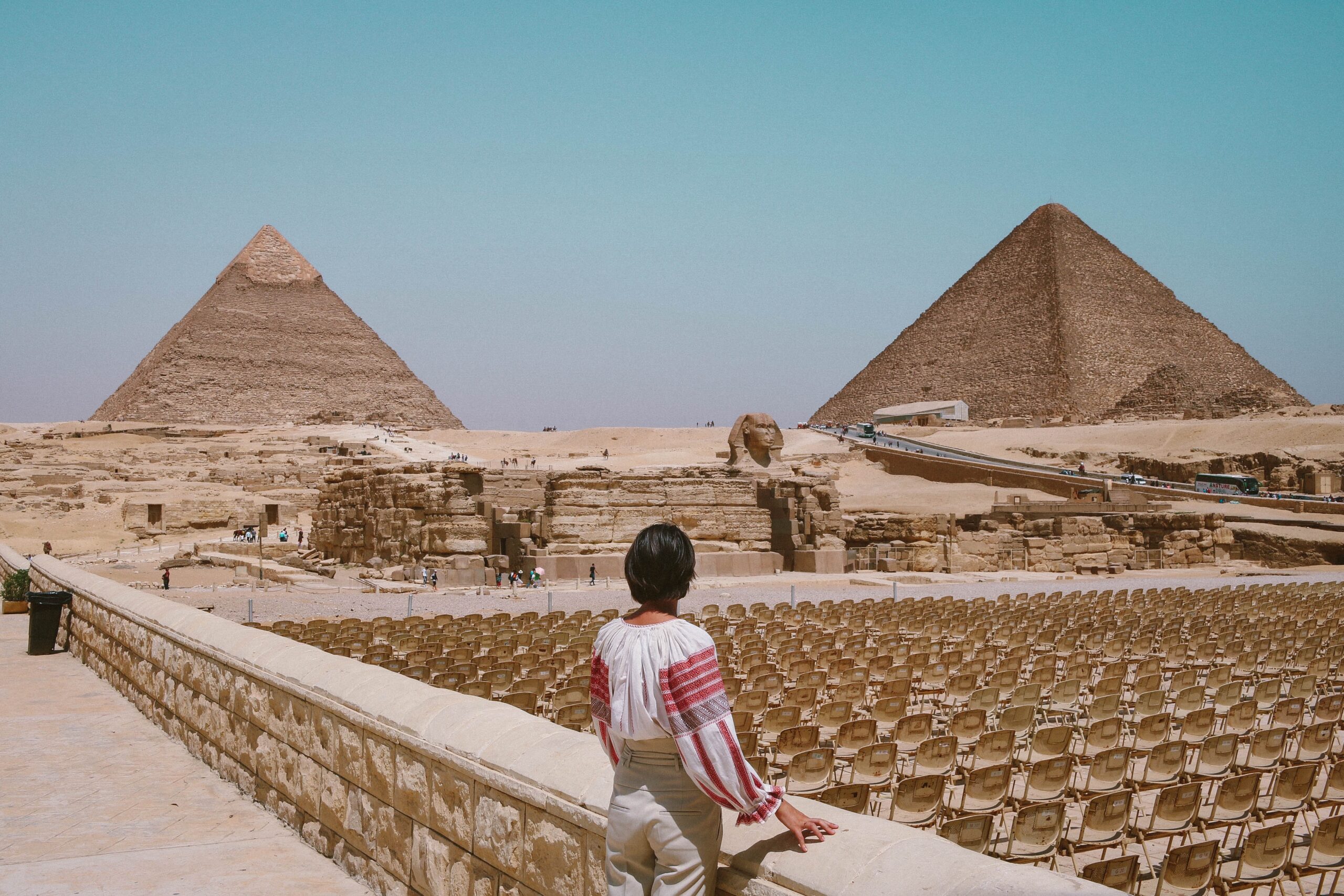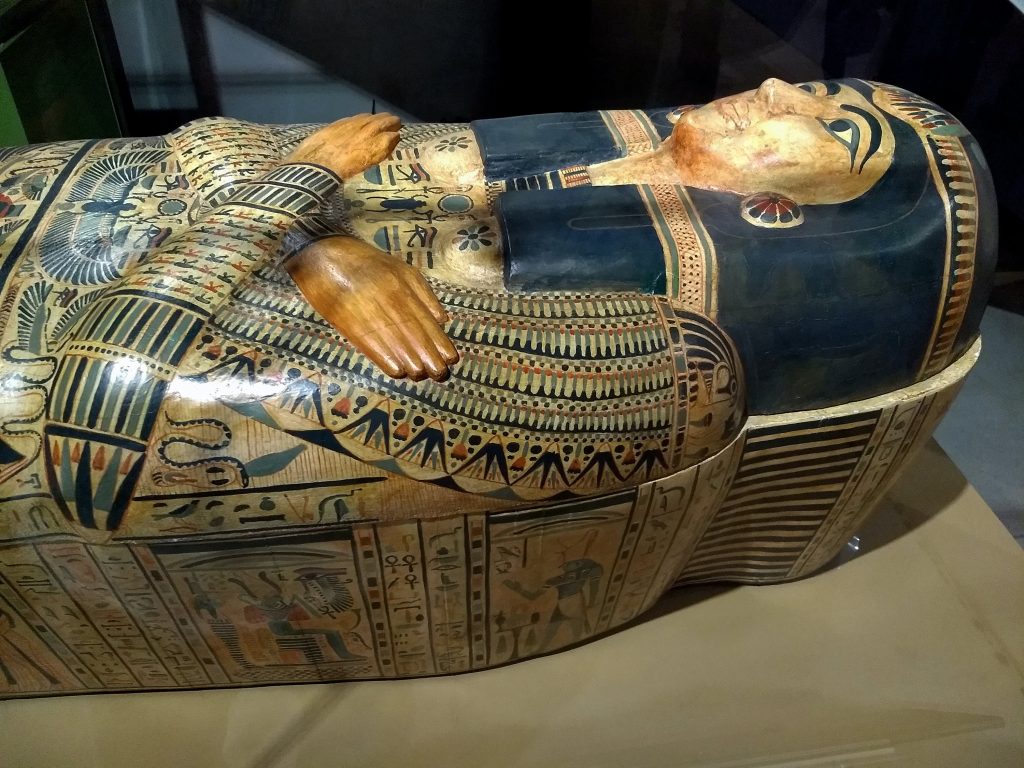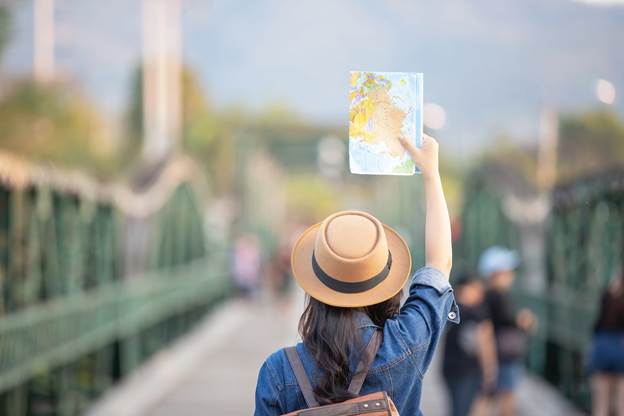Digital technologies and platforms are disrupting the way tourism operates. Is Egypt paying attention?
When Minister of Tourism and Antiquities Khaled al Anani announced another royal parade is in the making to transfer the entire artefact collection of King Tutankhamun to the Grand Egyptian Museum (GEM) in Giza, we couldn’t wait to interview two of Egypt’s top content creators in travel and tourism about effective techniques to improve digital marketing and tourism promotion.

Travel marketing has never been more important. The rise of social media and influencers means the world is more on display than ever before and consumers are searching for inspiration.
According to a Google report, about half of leisure travelers go on one or two trips annually, but spend much more time and effort organizing those trips, including following hashtags and browsing travel brands’ social media accounts for inspiration and ideas. “Two-thirds of 18- to 34-year-olds admit the ‘Instagramability’ of a destination is the single most important factor when it comes to deciding on a location,” the report says.
Digital platforms have made it easier than ever to shop around for holidays, as well as book a trip on a whim: 71% of U.S. travellers have planned a holiday online, 79% have shopped online for their trip and 83% have booked their vacation online, according to the Travel Marketer Guide to the U.S. Digital Travel Landscape.
All of this means countries need to perfect their digital marketing to make the most of the high number of online vacation shoppers.
Business Monthly interviewed Omar Attia (@events.around.egypt), marketer and author of “Around Egypt in 60 Days,” and Islam Sherif, marketer and founder of Nomad Globe (@_Nomads) to get to the nitty-gritty of digital travel marketing in Egypt.
Interviews have been edited for length and clarity.
Why is digital marketing important to promote Egypt as one of the best tourist destinations?
Omar Attia: For accessibility. Social media content for tourism promotion is becoming very appealing to foreign tourists. A single click or post can reach someone living all the way in the United States, Europe or Asia. Digital media platforms have become crucial for tourism promotion. Just last month, I had someone reach out to me from Slovenia saying he booked a flight to Egypt with friends after coming across an Instagram video we created on our Instagram account promoting Egypt. This is just a very simple example. On top of that, it’s easy to post everything about a certain attraction, be it pictures, videos, opening hours or GPS locations. You would be surprised how many tourists are inspired to book flights to a country to pose for a picture the same way they saw a travel blogger pose it on social media. Through online marketing, you don’t just tell people where to go and how to go, you inspire them with a full experience.
Islam Sherif: Social media and digital platforms have been contributing to a great extent to the promotion of travel in general, whether in Egypt or elsewhere. No one at this stage focuses on TV, media outlets or guides. The world right now is moving very fast and everyone wants to travel for the experience, rather than for informative tours. The key for Egypt is using historical and cultural places to offer unique experiences and create content to spread to the rest of the world.
How do you assess Egypt’s digital marketing and branding initiatives over the past five years?
Attia: From where we stood a decade ago, we’ve definitely advanced. We have hundreds of social media platforms that showcase Egypt’s beauty, whether @myegypt or @experienceegypt or the official platform of the Ministry of Tourism. We still have miles to go. If we compare Egypt, digitally, to a city like Dubai, we have milestones to reach. The way Dubai spends millions to attract global influencers and travel bloggers from around the world to pamper them with services just to get one nice picture or video from their experience is the vision we need to follow. The invitees’ millions of followers then will become our target audience.
Sherif: We’re actually moving toward a good direction after the creation of @experienceegypt. The concept of having a dedicated digital channel with Egypt’s name promoting professional content to international and local audiences is definitely great. Also, a couple of digital initiatives designed through creating hashtags like #thisisegypt and #beachesinegypt have been game changers. We have been operating under a hit-and-run kind of vision. Moving forward, we need more of this with better focus.
How can we advance better?
Attia: We need a proper plan that includes a potential list of invitees to the country. More importantly, we need the creative mind to address and intrigue them to come to Egypt for a unique experience not found anywhere else. It’s how you promote your uniqueness that makes the difference. Recently, there has been a paragliding experience over the Pyramids that I’ve gone to. An activity like this is something we cannot access anywhere else in the world. Getting a tourist to come to paraglide over the last wonder of the ancient world, that’s a huge bucket list experience. That alone will definitely get tourists to fly to Cairo.
Sherif: We need to showcase more of Egypt through reaching out to content creators and better campaigns. We need a digital presence outside of Egypt. I suggest we conduct a digital campaign jointly with international pages and bloggers just like we did with @beautifuldestinations a couple of years back. It was a hit, but the problem is you cannot capture the success or measure it without sustainability. We have to keep feeding content and launching one campaign after the other for impact.
Who should be the target audience?
Attia: Egypt has destinations to satisfy the needs of any traveler. Egypt needs to position social media campaigns to address all age brackets and social classes through targeted campaigns catering to different interests and activities.
Sherif: Young travelers, of course. The future generation makes all their flight and hotel bookings online. We need to speak to them in their own language through their favorite channels when it comes to marketing and promoting tourist destinations.

What’s the first step to position Egypt as one of the best touristic destinations in the world?
Attia: A tailor-made campaign. Now is prime time for it since the Grand Egyptian Museum is due to open. Let’s have a targeted campaign and invite all social media, travel bloggers, international influencers, especially those who have content concentrated on travel, history and archaeology. Once that is over, it should not stop here. I would advise the Tourism Ministry to conduct tailor-made marketing campaigns all year round. Let’s have a calendar starting from June 2021 to June 2022. Each quarter we can execute a tailor-made campaign targeting a specific audience.
Sherif: We need to keep on building the digital presence we already have by working alongside international celebrities, content creators and bloggers. We need to spread out our content featuring touristic places and archaeological sites through the eyes of international audiences.
Can you share examples of targeted campaigns?
Attia: Special campaigns to target scuba diving enthusiasts, regardless of their age, to position Egypt as one of the top 10 dive [destinations] in the world. Then, we could have other campaigns targeting ancient Egypt lovers. These groups of people are still not confined to a certain social segment or age group. With the anticipated opening of the Grand Egyptian Museum, targeted campaigns can make a real difference. Finally, we also could launch campaigns to cater to those interested in adrenaline-rush activities like skydiving, which is now offered at the Pyramids, or ziplining, newly offered in Mokattam with a stunning view of the mountains of Monastery of Saint Samaan El Kharaz. In Egypt, there are plenty of adventures for family travelers of all income groups.
Sherif: International actors, singers and athletes come to Egypt with their families and leave with no buzz made locally or internationally around their stay or experience. An opportunity like this, if used creatively and wisely, is a very valuable promotion. There should be a marketing team in charge of covering VIP visits. They should be informed and connected with guests to plan a targeted itinerary for social media content crossposting. On-ground, fun experiences need to be customized and executed based on their interests. For example, a Bedouin dinner at sunset by the Pyramids or a special permission to tour the pyramids or museums at night or even a skydiving experience. All can help generate rich, engaging digital media content.
How do you assess the exposure of Egypt’s campaign for the “Golden Pharohs Parade”?
Attia: It was extremely impressive and surpassed everyone’s expectations. It revived our pride in being Egyptian. The coverage was well spread locally. Everyone was watching it, whether live in Tahrir Square or on social media and national TV. Internationally, we expected more, but I couldn’t blame them due to COVID-19. Many countries are preoccupied fighting the virus. Nonetheless, the event still got international coverage through the BBC, CNN, online platforms like Lonely Planet and National Geographic Travel. The ministry was definitely expecting more when it comes to international coverage. I hope they are trying to overcome that with the opening of GEM.
Sherif: It was one of the best events designed and executed in the past 10-15 years. The viewership was very high in the local market. Yet, the parade did not get enough international exposure because we depended on Egyptian tools and platforms to showcase and cover the parade, along with a couple of foreign news outlets. The problem here is that the majority of travelers up to the age of 45 do not really follow international media outlets. What we lagged in was a different type of coverage. We had to bring a lot of content creators, famous photographers, international influencers and actors to cover the experience of witnessing a parade like this.
What do you advise for the upcoming marketing campaign marking the opening of GEM?
Attia: Let’s not rush its opening, and wait until the pandemic flattens down to get the chance to invite celebrities, international media, ambassadors and presidents from different countries for better coverage. When it comes to music, why not have an international celebrity like Andrea Bocelli perform alongside an Egyptian orchestra like that of Nader Abbassi, who performed during the mummies parade. Blending local with international music will get better exposure. It’s a great opportunity that we have not exploited in the past.
Sherif: Invite international figures to inspire millions to come and witness, rather than lock attendance to just government and officials. Secondly, we need to sell the attendance of such an event and to market this event worldwide. Imagine this: “It’s a lifetime opportunity. Travel to Egypt and attend the opening of Egypt’s Grand Egyptian Museum, hosting King Tut.” Those interested can register and purchase the ticket online from anywhere in the world. For security purposes, the opening can even spread over two days. The first day is locked for special invites and presidents of the world. The second day is open for celebrities and ticket holders. Tour operators can capitalize on this immensely and design a special package including flights, hotels, sightseeing and the inauguration event of the museum.
What are digital marketing techniques Egypt can follow in its upcoming campaign?
Attia: Holograms! This can be implemented in two ways. We can create holograms inside GEM for all the monuments and artifacts that are no longer in Egypt, like the Nefertiti bust that is exhibited in Berlin. Another idea is to scatter holograms around iconic places in Cairo to divert people to the GEM. We can create a hologram of the statue of Ramsis II, which has been transported to GEM, exhibited in Tahrir square in a well-secured area so people can see the hologram at night. We can place signage underneath it to direct locals and tourists to the GEM. We can make 10 holograms to be placed in busy locations in Cairo. QR codes can be placed around these areas for locals and tourists to scan for free entry at the museum or a discounted ticket price. Ideas like these will create a social media buzz and intrigue more tourists to travel to Egypt and visit the new museum.
Does Egypt need different brand identities to position itself for multiple markets?
Attia: Yes. Tourism already is sub-segmented. You have medical and sports tourism in addition to archaeological and beach destinations. That’s why you need different brands to cater to those different sectors. Other forms of tourism that I personally have been engaged in recently is events tourism.
Sherif: Definitely. Young travelers are growing and they are the ones spending money. We need to make sure we do not lock Egypt in a specific area where you just come to see the Pyramids and temples and leave. We need to spread awareness that we have fun experiences tourists can enjoy and beaches on the Mediterranean to hop to and from. We have mountains, deserts, sports, boats and safaris. Egypt is an all-inclusive touristic destination that has everything one can be looking for. We need to position it in a way that is tourist friendly with a variety of experiences plus a very strong historic presence.
Do you think Egypt can be branded as a global destination for events?
Attia: This is my dream. Through my agency, I’m trying to merge tourism with events by organizing personal and corporate events in touristic and historical attractions like Al Manial Palace, Baron Palace, Manasterly Palace, Abdeen Palace, the Citadel. We’re also negotiating with Orascom to have a small segment of 9 Pyramids Lounge on certain days to organize global corporate events. We need to follow countries like Greece, which were able to position themselves as a global destination for weddings. And Dubai, which positioned itself recently as a global destination for exhibitions. My dream is to position Egypt as a global events, touristic destination where people from around the world can have their weddings in a place like Al Manial Palace.
Do you think Egypt can be branded as a global destination for exotic and adrenaline-rush activities?
Sherif: Why not? We were able for the first time ever to allow locals and tourists the opportunity to take a helicopter tour over Cairo, flying over the Pyramids of Giza, the Citadel and the Nile as the sun set over the city. We also have been working with the Egyptian Air Forces for a while now to fly or rent out planes to go to places that are not really accessible. We already made a couple of trips to Siwa and Elba National Park, at the border with Sudan. There’s always room for more as long as we keep on designing and branding Egypt in a way that was never seen before. We might go places that people are used to, but if done differently, it would attract new people to try it out.







